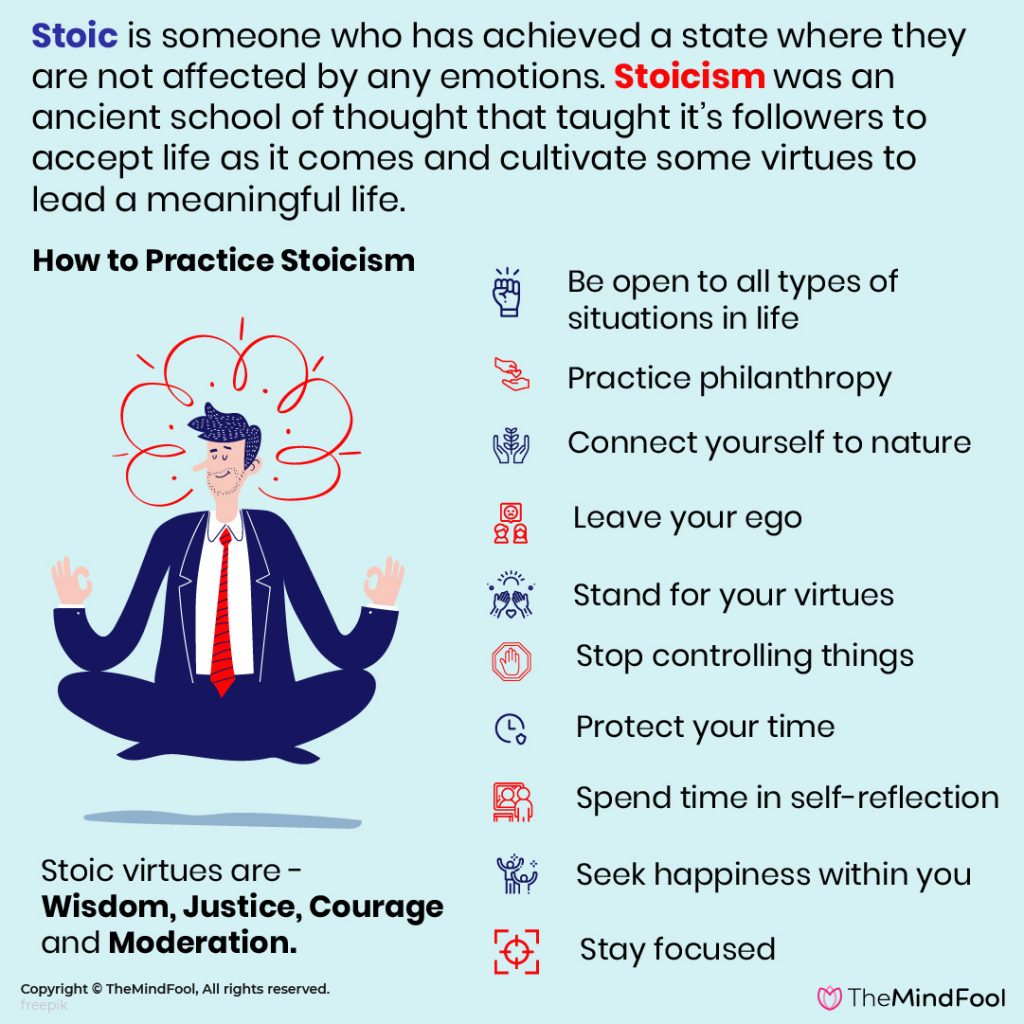Navigating Life’s Challenges: Stoicism’s Guide to Overcoming Fate’s Obstacles
Life is a journey filled with unexpected twists and turns, presenting us with a myriad of challenges that can often feel overwhelming. In the face of such adversity, it is natural to question our ability to overcome these obstacles and forge ahead. However, for centuries, the philosophy of Stoicism has provided individuals with a practical and profound approach to managing life’s trials. Rooted in ancient Greece, Stoicism offers a powerful framework for embracing fate’s obstacles and finding resilience in the face of adversity. In this article, we delve into the principles of Stoicism and explore how its wisdom can guide us towards a more fulfilling and purposeful life, even in the midst of life’s most formidable challenges. Join us as we navigate the timeless teachings of Stoicism and uncover the invaluable tools it holds for overcoming fate’s obstacles.
https://www.youtube.com/watch?v=hOFyP_K3Ij8
Understanding Stoicism: A Philosophy for Overcoming Life’s Challenges
Stoicism, an ancient philosophy founded by Zeno of Citium in Athens, offers a practical framework for navigating the complexities of life. At its core, Stoicism teaches us to focus on the things within our control and let go of those we cannot influence. By accepting the inevitability of challenges and hardships, we develop a resilient mindset that allows us to overcome adversity with grace and wisdom. Stoicism emphasizes the importance of living in harmony with nature and accepting fate, allowing us to find peace amidst chaos. By understanding and embracing Stoicism, we can gain valuable insights and tools to navigate life’s challenges and find fulfillment.
Practical Wisdom: Applying Stoic Principles in the Face of Adversity
Stoicism provides us with practical principles that can be applied to everyday life, especially when facing adversity. The philosophy teaches us to focus on our thoughts and perceptions, recognizing that how we interpret events determines our emotional response. With this awareness, we can cultivate a mindset of gratitude, acceptance, and resilience. Stoicism encourages us to see obstacles as opportunities for growth and development, transforming setbacks into stepping stones towards personal progress. By practicing self-discipline, mindfulness, and the careful management of our desires, we can find inner stability and navigate life’s challenges with wisdom and grace.
Finding Inner Resilience: Stoicism’s Approach to Overcoming Fate’s Obstacles
The human experience is often dotted with obstacles and challenges that can leave us feeling overwhelmed and defeated. Stoicism offers a powerful approach to these difficulties by reminding us that our reactions and attitudes are within our control. By accepting the nature of fate and the inescapable hurdles it presents, Stoicism teaches us to cultivate inner resilience. This philosophy encourages us to focus on developing our character and virtues, finding strength in our ability to choose how we respond to external circumstances. By shifting our perspective and embracing fate’s obstacles, Stoicism empowers us to transform challenges into opportunities for personal growth and self-improvement.
Embracing Stoic Virtues: Tools for Navigating Life’s Challenges with Grace
At the heart of Stoicism lie a set of virtues that act as invaluable tools for navigating life’s challenges with grace and wisdom. These virtues include wisdom, courage, justice, and temperance. By cultivating these virtues, we develop a moral compass that guides our actions and decisions. Wisdom helps us make sound judgments, while courage empowers us to face adversity head-on. Justice reminds us to treat others with fairness and kindness, and temperance enables us to find balance and moderation in our desires. By actively embracing and embodying these virtues, we can navigate life’s challenges with grace, integrity, and a sense of inner harmony.
Stoicism in Practice: Strategies for Overcoming Fate’s Obstacles and Thriving
Stoicism is not merely an abstract philosophy; it is meant to be lived and practiced. To overcome fate’s obstacles and thrive, Stoicism teaches us to focus on the present moment and accept the things beyond our control. This philosophy encourages us to cultivate an attitude of gratitude, reminding us to appreciate what we have rather than dwell on what we lack. Stoicism urges us to develop self-awareness and engage in introspection, allowing us to identify and challenge our own irrational beliefs and behaviors. By practicing resilience, moderation, and detachment from outcomes, we can navigate life’s challenges with greater equanimity, finding fulfillment and thriving despite the uncertainties we face.
Interpretation of “Stoicism Occurrences Put Out by Fate”
One possible interpretation of the keyword “Stoicism Occurrences Put Out by Fate” could be the concept of how stoicism, a philosophical school, guides individuals to accept and endure the occurrences determined by fate. Here are some related pieces of information on this topic:
1. Stoicism
Stoicism is an ancient Greek philosophy founded by Zeno of Citium in the early 3rd century BC. It teaches that individuals should focus on what is within their control and accept what is outside of their control, such as events determined by fate.
2. Stoic teachings on fate
Stoicism suggests that individuals should not resist or be disturbed by the occurrences that are predetermined by fate. Instead, one should cultivate inner strength and understanding to navigate through life’s ups and downs.
3. Accepting events beyond our control
Stoics believe that acknowledging the power of fate and accepting it as an integral part of life can lead to tranquility and inner peace. By recognizing that some events are outside of our control, we can focus our energies on what we can influence or change.
4. Stoic practices
Stoics often practice negative visualization, which involves mentally preparing for worst-case scenarios. By anticipating adverse events, individuals are better equipped to accept and handle them when they occur.
5. Developing resilience
Stoic philosophy emphasizes building resilience and emotional strength to endure the occurrences that fate brings. This can involve practicing self-discipline, living virtuously, and having a rational approach to understanding one’s emotions.
6. Epictetus on fate
Epictetus, one of the prominent Stoic philosophers, notably said, “Do not demand that things happen as you wish, but wish them to happen as they do happen, and you will go on well.” This quote encapsulates the Stoic attitude towards fate and the importance of accepting what comes our way.
7. Stoicism and modern applications
Stoic teachings have gained popularity in modern times, as individuals seek guidance on managing stress, anxiety, and uncertain situations. Various books, articles, and online resources explore how Stoicism can be applied in contemporary life.
Remember that this interpretation of the keyword may not capture its intended meaning precisely. If you meant something different, please provide further clarification.

In conclusion
Stoicism offers us a valuable guide to overcoming life’s challenges and navigating the obstacles that fate throws our way. By cultivating a mindset of resilience, self-discipline, and acceptance of the things we cannot control, we can equip ourselves with the tools necessary to tackle any adversity.
Stoic principles remind us that our perception of events and our ability to choose our responses are within our control, empowering us to face challenges with strength and fortitude. Whether we are faced with personal setbacks, societal pressures, or unforeseen circumstances, Stoicism provides a practical and philosophical framework for finding meaning and maintaining inner peace.
By adopting Stoic practices such as practicing gratitude, embracing the present moment, and focusing on what is in our control, we can navigate life’s challenges and emerge stronger and more resilient individuals. Ultimately, Stoicism teaches us that we have the power to shape our own destinies and find tranquility amidst life’s uncertainties.
